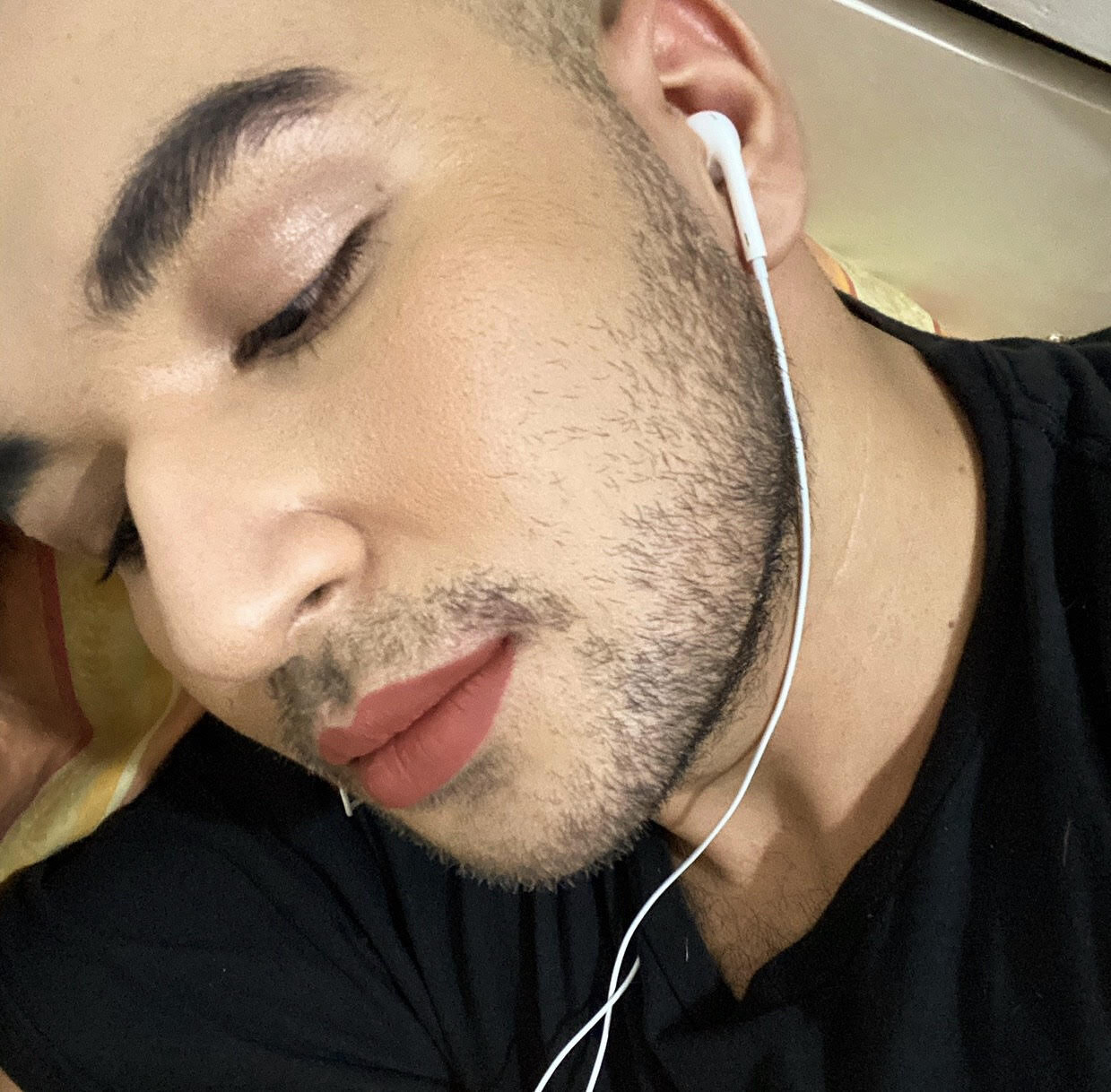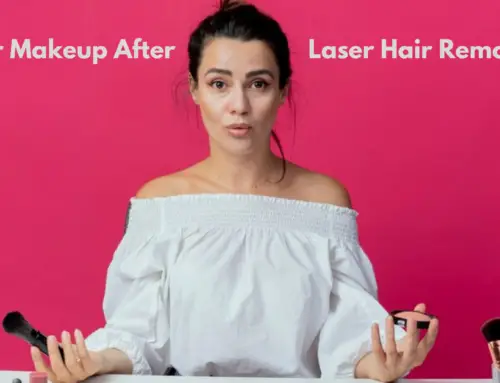Have you ever wondered why makeup isn’t marketed towards men? While the beauty industry thrives on countless products catering to women, the male demographic seems to be left out in the cold. It’s a surprising fact considering the growing trend of men’s grooming and self-care. So, what is it that keeps makeup from becoming a mainstream option for men?
One of the primary reasons why makeup isn’t marketed towards men can be attributed to societal norms and traditional gender roles. For centuries, makeup has been seen as a predominantly feminine practice, often associated with enhancing beauty and conforming to certain beauty standards. As a result, marketing efforts and product development have focused heavily on women as the primary consumers. However, there is a changing tide with the rise of gender inclusivity and the breaking down of gender stereotypes. Brands that recognize this shift are starting to pave the way for a more inclusive beauty industry, offering grooming and skincare products tailored specifically for men, but there is still a long way to go.
Although makeup has traditionally been marketed towards women, there is a growing interest in makeup among men. The beauty industry is beginning to recognize this trend and is slowly expanding its offerings to cater to men. However, societal norms and stereotypes regarding masculinity still play a role in the limited marketing of makeup towards men. As attitudes continue to evolve, we can expect to see more inclusive and diverse marketing strategies in the future.

Why Isn’t Makeup Marketed Towards Men?
Makeup has long been associated with women and has been traditionally marketed towards them. However, in recent years, there has been a growing interest in makeup among men. Despite this, the makeup industry still predominantly targets women. This raises the question: Why isn’t makeup marketed towards men?
Societal Norms and Gender Stereotypes
One possible reason why makeup is not marketed towards men is the existence of societal norms and gender stereotypes. Makeup has historically been seen as a feminine product, and there is a social stigma attached to men using it. Society often associates makeup with femininity, and men who show an interest in makeup may face judgment and ridicule.
Gender stereotypes also play a role in the lack of marketing towards men. Society expects men to be masculine and conform to traditional ideals of masculinity, which often exclude the use of makeup. There is a perception that men who use makeup are not conforming to these norms and may be viewed as less masculine.
These societal norms and gender stereotypes limit the marketing of makeup to men, as brands are hesitant to challenge these existing beliefs and risk alienating their target audience.
Limited Demand and Market Size
Another reason why makeup is not marketed towards men is the perception of limited demand and market size. Historically, the beauty industry has primarily focused on women as their target consumers because they have been seen as the main consumers of beauty products.
While there is a growing interest in makeup among men, the demand is still relatively small compared to women. This perception of limited demand may discourage brands from investing in marketing campaigns specifically targeting men. They may feel that the potential profits are not worth the investment and effort.
Additionally, the market size for men’s makeup may be smaller compared to women’s makeup. Men’s grooming products, including skincare and fragrance, have seen a significant growth in recent years. However, makeup for men is still a niche market, and brands may prioritize other product categories with larger market potential.
Lack of Representation and Education
The lack of representation and education about makeup for men is another significant factor. The beauty industry has primarily focused on women, and the majority of advertisements, tutorials, and influencer content revolve around women’s makeup.
Without adequate representation and education targeted towards men, there may be a lack of awareness and understanding about makeup for men. Many men may not know how to use makeup or be unaware of the available products specifically designed for them. This lack of knowledge and exposure makes it difficult for men to develop an interest and make informed choices about using makeup.
Furthermore, the lack of representation in the media and advertising also reinforces the stigma and gender stereotypes surrounding men and makeup. When men do not see others like them using makeup or being represented in a positive light, they may feel hesitant to explore this form of self-expression.
Progress and Changing Attitudes
While makeup marketing towards men is still limited, there have been some promising signs of progress and changing attitudes. Several inclusive and gender-neutral makeup brands have emerged in recent years, catering to a diverse range of consumers.
Social media platforms have also played a significant role in challenging traditional beauty standards and providing a space for men to share their love for makeup. Influencers and content creators have sparked conversations and inspired others to experiment with makeup, helping to break down gender barriers and challenge societal norms.
As society becomes more accepting and inclusive, it is likely that the makeup industry will continue to evolve and expand its marketing efforts towards men. By normalizing and promoting the idea of makeup as a form of self-expression for all genders, the industry has the potential to tap into a previously untapped market.
In conclusion, the limited marketing of makeup towards men can be attributed to societal norms, gender stereotypes, perceived limited demand, and a lack of representation and education. However, with the changing attitudes and progress in society, there is hope for a more inclusive beauty industry that embraces all genders as consumers.
Key Takeaways
- 1. Makeup is primarily marketed towards women, but there is no inherent reason why it can’t be marketed towards men as well.
- 2. Societal norms and stereotypes play a major role in shaping the marketing of makeup, often associating it with femininity.
- 3. There is a growing demand from men for makeup products, indicating a potential for expansion in the market.
- 4. Companies have started to recognize this demand and are slowly beginning to develop makeup products specifically targeted at men.
- 5. Gender-neutral marketing strategies that focus on individuality and self-expression could help make makeup more inclusive for everyone.
Frequently Asked Questions
Many people wonder why makeup isn’t marketed towards men. In today’s society, where gender norms are evolving and self-expression is embraced, it’s important to explore this topic. Here are some common questions and answers to help shed light on why makeup isn’t as widely marketed to men.
1. What are the societal norms that contribute to the lack of makeup marketing for men?
Societal norms play a significant role in the lack of makeup marketing for men. Traditionally, makeup has been associated with femininity and seen as a tool for enhancing women’s beauty. This association has created a cultural bias that discourages men from exploring makeup as a form of self-expression. Additionally, there is often a fear of judgment and social stigma attached to men wearing makeup, which further discourages marketers from targeting this demographic.
To break down these societal norms, it’s crucial to challenge traditional gender roles and embrace diversity in beauty standards. By promoting inclusivity and encouraging men to embrace their own unique style, marketers can help create a more accepting and diverse beauty industry.
2. Are there any emerging trends suggesting a shift towards makeup marketing for men?
While makeup marketing for men has been limited, there are some emerging trends that suggest a shift in the industry. With the rise of gender-neutral beauty brands and the increasing popularity of male beauty influencers, there is a growing interest in men’s makeup. Social media platforms have also played a significant role in normalizing men’s use of makeup, allowing individuals to express themselves and showcase their creativity.
As these trends continue to gain momentum, it’s possible that more brands will recognize the untapped market of male consumers and begin to market makeup specifically towards men.
3. How can the beauty industry overcome the stigma surrounding men’s makeup?
To overcome the stigma surrounding men’s makeup, the beauty industry needs to actively challenge gender stereotypes and educate the public. By featuring diverse models and influencers in their campaigns, brands can help normalize the use of makeup by men. They can also create educational initiatives that highlight the benefits of makeup for self-expression, creativity, and skincare.
Moreover, collaboration with male beauty influencers and celebrities can further promote the idea that makeup is not restricted to any gender. Through collective efforts, the industry can break down barriers and create a more inclusive space for everyone.
4. What are some potential challenges and opportunities for marketing makeup to men?
One of the main challenges for marketing makeup to men is the deeply ingrained gender norms and cultural biases. Convincing men to embrace makeup as a form of self-expression can be met with resistance and judgment. However, this challenge also presents an opportunity for brands to pave the way for change and challenge societal norms.
Another potential challenge is the lack of familiarity and knowledge about makeup products among men. Providing educational resources, tutorials, and easy-to-use products specifically targeted at men can help overcome this barrier.
5. How can men actively participate and support the push for more inclusive makeup marketing?
Men can actively participate and support the push for more inclusive makeup marketing by normalizing their use of makeup and challenging societal stereotypes. By confidently embracing makeup as a form of self-expression and sharing their experiences on social media, men can help break down barriers and inspire others to do the same.
Additionally, men can support and promote brands that prioritize inclusivity and diversity in their marketing efforts. By using their purchasing power to support these brands, men can send a strong message to the beauty industry that there is a demand for more gender-inclusive beauty products.
“I said this about Women and Make up and i got in huge trouble” – Jordan Peterson
Makeup is primarily marketed towards women because of societal norms and traditional gender roles.
However, there is a growing movement to change this and make makeup more inclusive for all genders.






Leave A Comment